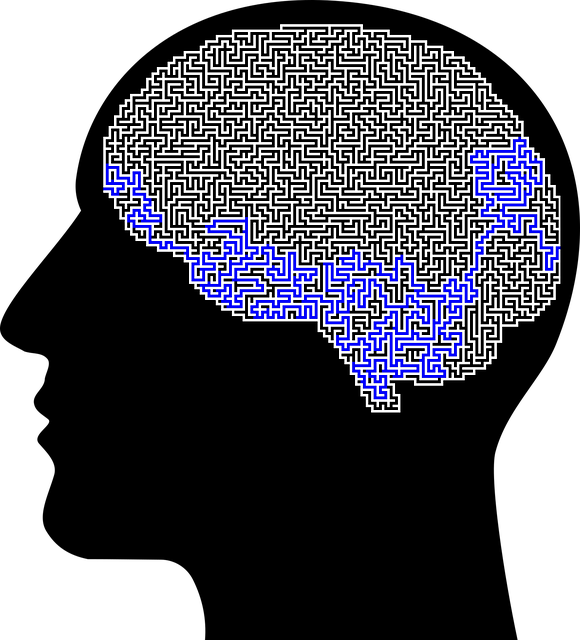Mental wellness coaching programs in Longmont are revolutionizing PTSD therapy, combining evidence-based practices with personalized techniques. Targeting specific demographics, these initiatives reduce mental illness stigma and foster supportive communities. Structured yet flexible, the programs offer targeted stress relief techniques through partnerships with community centers, schools, and hospitals. By integrating CBT, EMDR, and mindfulness, coaches help clients process traumatic memories and regain control of their lives. Measuring success involves client satisfaction and participation rates, with regular follow-ups ensuring continuity of care. These tailored approaches cater to individual needs, promoting holistic emotional well-being in Longmont's PTSD therapy landscape.
In today’s fast-paced world, mental wellness coaching programs are gaining prominence as essential tools for addressing complex issues like Post-Traumatic Stress Disorder (PTSD). This article explores the development of such programs in Longmont, focusing on understanding their impact and identifying target groups. We delve into designing effective coaching models, integrating evidence-based techniques, and measuring success. By combining these strategies, Longmont PTSD therapy programs can offer comprehensive care, fostering recovery and enhancing overall well-being for those affected by trauma.
- Understanding Mental Wellness Coaching and Its Impact
- Identifying Target Groups for Post-Traumatic Stress Disorder (PTSD) Therapy in Longmont
- Designing Effective Coaching Programs for PTSD Recovery
- Integrating Evidence-Based Techniques into the Coaching Model
- Measuring Success and Continuity of Care in Longmont PTSD Therapy Programs
Understanding Mental Wellness Coaching and Its Impact

Mental wellness coaching programs have emerged as a powerful tool in addressing various mental health concerns, including Longmont Post-Traumatic Stress Disorder (PTSD) Therapy. This approach focuses on empowering individuals to develop coping strategies and enhance their overall well-being. Through tailored guidance and support, coaches help clients navigate challenges related to stress, anxiety, depression, and other common mental illnesses. By combining evidence-based practices with personalized techniques, these programs offer a unique and effective way to manage and overcome mental health issues.
The impact of such initiatives extends beyond individual transformation. Mental Illness Stigma Reduction Efforts can be significantly aided by coaching, fostering an environment where people feel supported and understood. Stress Management Workshops Organization, for instance, can benefit from the structured yet flexible nature of coaching, enabling them to provide targeted stress relief techniques to their participants. Moreover, promoting Mental Health Awareness through these programs encourages early intervention and prevents issues from escalating, ultimately contributing to a healthier and more resilient community.
Identifying Target Groups for Post-Traumatic Stress Disorder (PTSD) Therapy in Longmont

In Longmont, identifying target groups for Post-Traumatic Stress Disorder (PTSD) therapy is a nuanced process that requires understanding the unique needs and experiences of individuals who have experienced trauma. This may include veterans, survivors of domestic violence, victims of accidents or crimes, and those exposed to natural disasters. Local organizations like the Stress Management Workshops Organization play a crucial role in screening and referring clients who could greatly benefit from specialized PTSD therapy. By partnering with community centers, schools, and hospitals, these groups help ensure that those facing PTSD receive the support they need for their emotional healing processes.
The development of mental wellness coaching programs tailored to Longmont’s specific demographics is essential. For example, a program designed for veterans might focus on transitioning from military to civilian life, while one for trauma survivors could emphasize positive thinking techniques and coping mechanisms. These initiatives aim not only to address the prevalence of PTSD in Longmont but also to foster a supportive environment that promotes holistic emotional healing.
Designing Effective Coaching Programs for PTSD Recovery

Designing effective coaching programs for Post-Traumatic Stress Disorder (PTSD) recovery is a specialized task that requires tailored approaches to cater to the unique needs of individuals dealing with this condition. Longmont, CO, has seen an increased demand for PTSD therapy services, reflecting a broader trend in mental health awareness. A well-structured coaching program can offer much-needed support by helping clients process traumatic memories, develop coping strategies, and restore a sense of control over their lives.
The development of such programs should focus on evidence-based techniques that promote resilience and emotional regulation. Incorporating elements from cognitive behavioral therapy (CBT), eye movement desensitization and reprocessing (EMDR), and mindfulness practices can create a comprehensive framework for healing. Additionally, integrating these therapies into a structured podcast series designed for mental wellness can further enhance accessibility and engagement, making recovery a more tangible and supportive process for those navigating PTSD in the Longmont community and beyond.
Integrating Evidence-Based Techniques into the Coaching Model

Integrating evidence-based techniques into mental wellness coaching programs is a strategic move to ensure effective and impactful support for individuals seeking improved mental health. Longmont Post-Traumatic Stress Disorder (PTSD) therapy, for instance, has been shown to be transformative for many. Coaching models can benefit from incorporating these proven methods, such as Cognitive Behavioral Therapy (CBT), which helps clients challenge negative thought patterns and develop healthier coping mechanisms. By combining this with empathy building strategies, coaches create a safe space for clients to explore their emotions and experiences without judgment.
This integration also promotes the teaching of self-care practices tailored to individual needs. Techniques like mindfulness meditation, stress management strategies, and emotional regulation skills not only enhance overall mental health awareness but also empower clients to take charge of their well-being. Through these evidence-based techniques, coaching programs can offer a holistic approach that addresses the root causes of distress and fosters resilience, leading to lasting positive changes.
Measuring Success and Continuity of Care in Longmont PTSD Therapy Programs

Measuring success and continuity of care are essential aspects when evaluating Longmont Post-Traumatic Stress Disorder (PTSD) therapy programs. The effectiveness of these initiatives can be assessed through a multi-faceted approach, focusing on both short-term outcomes and long-term recovery. One key metric is client satisfaction, gauged through feedback forms and individual interviews, which provides valuable insights into the perceived benefits of therapy. Additionally, tracking participation rates and program retention over time reveals the level of engagement and commitment among clients, indicating the program’s ability to foster a supportive environment conducive to emotional healing processes.
Continuity of care is equally critical in ensuring sustained improvement in trauma support services. This involves regular follow-ups with participants to monitor their progress, identify potential setbacks, and make necessary adjustments to treatment plans. Integrating stress management techniques into the therapeutic framework not only enhances overall program outcomes but also empowers individuals with coping mechanisms for future challenges. By consistently measuring these key performance indicators, Longmont PTSD therapy programs can optimize their services, catering better to the unique needs of each client and promoting holistic emotional well-being.
Mental wellness coaching programs, particularly those focusing on Longmont Post-Traumatic Stress Disorder (PTSD) therapy, have proven to be transformative. By integrating evidence-based techniques and tailoring them to specific target groups, these programs offer a unique and effective approach to recovery. The success of these initiatives is measurable through continued care and positive outcomes, ensuring that individuals in Longmont receive the support they need to navigate and overcome PTSD. This comprehensive approach sets a new standard for mental health care, providing hope and healing to those who have experienced trauma.














